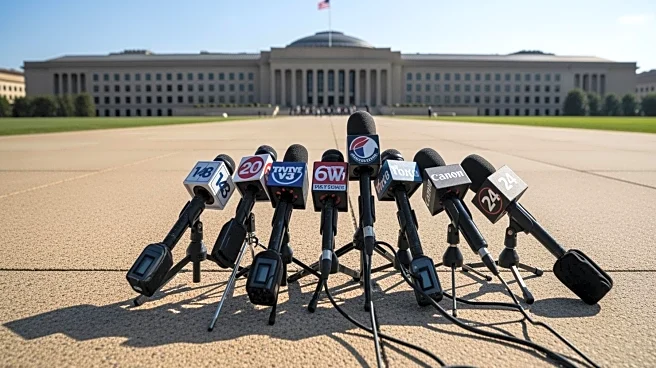What's Happening?
Journalists are turning in their Pentagon press passes following the implementation of new restrictions by Defense Secretary Pete Hegseth. The policy requires that all information shared with the media
be approved by an appropriate official, even if unclassified. This has led to widespread refusal from major news outlets, including Fox News, Newsmax, and The Daily Caller, to comply with the guidelines. The policy is seen as criminalizing routine reporting, prompting media organizations to give up their access to the Pentagon while pledging to continue covering military affairs from outside. A silent protest emerged with a flyer stating 'journalism is not a crime' appearing in the Pentagon's Correspondents' Corridor.
Why It's Important?
The new Pentagon policy represents a significant shift in how military coverage is managed, potentially impacting the transparency and accountability of military operations. By restricting access, the policy could limit the public's understanding of how the military is funded and managed, affecting public trust and oversight. The refusal of major news outlets to comply underscores the importance of press freedom and the role of journalism in providing accurate information about government activities. This move could lead to increased scrutiny and debate over the balance between national security and the public's right to know.
What's Next?
As journalists turn in their press passes, the Pentagon may face increased pressure to reconsider its policy, especially if legal challenges arise. Media organizations are likely to explore alternative methods of reporting on military affairs, potentially leading to changes in how information is gathered and disseminated. The situation may also prompt discussions between the Pentagon and media representatives to find a solution that respects both security concerns and journalistic integrity.
Beyond the Headlines
The policy could have broader implications for the relationship between the military and the media, potentially leading to a more adversarial dynamic. By limiting access, the Pentagon risks creating a perception of secrecy and reducing public trust in military operations. The move also raises ethical questions about the role of the press in holding government institutions accountable and the importance of maintaining a free and independent media.










